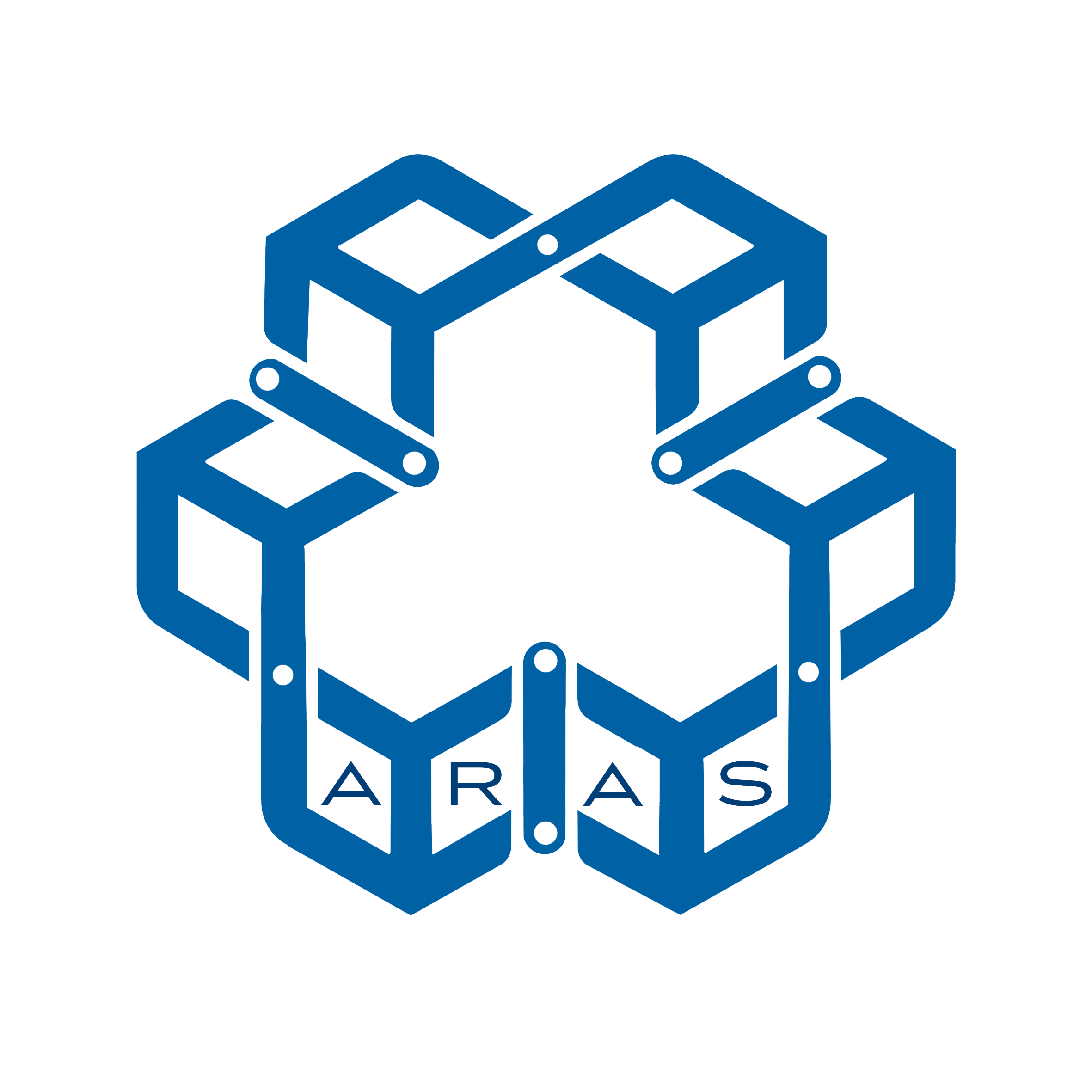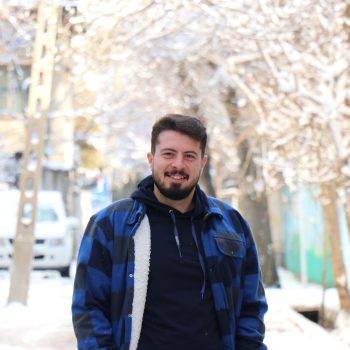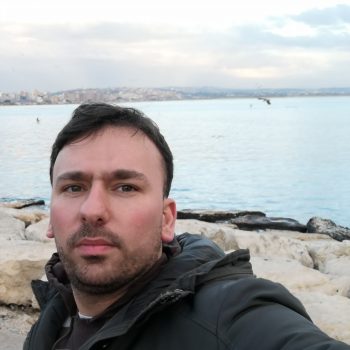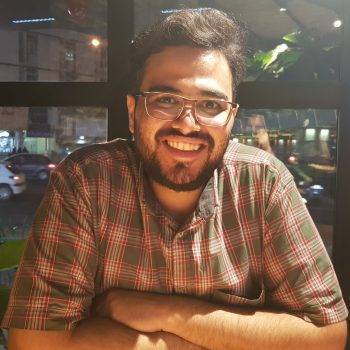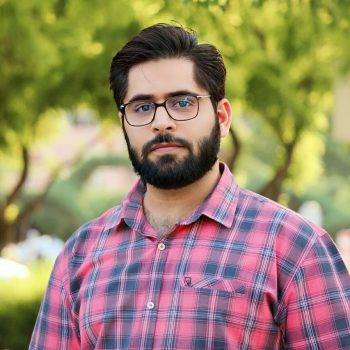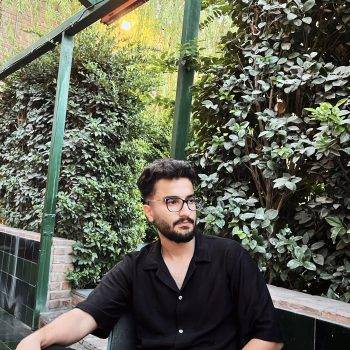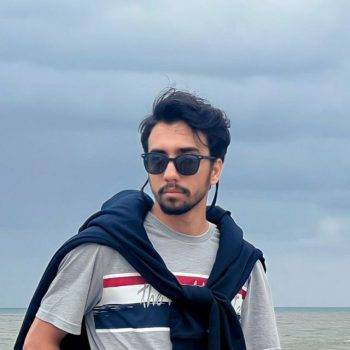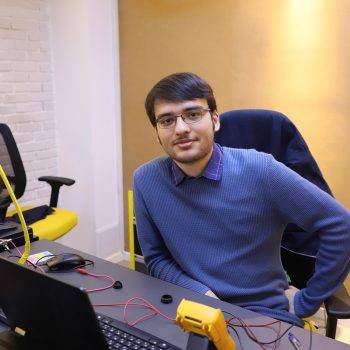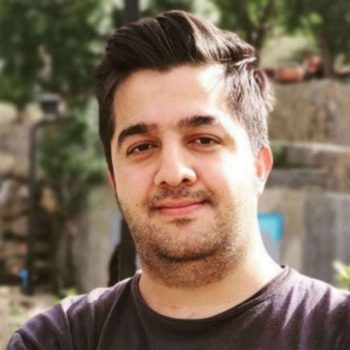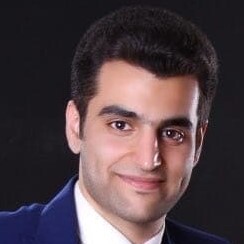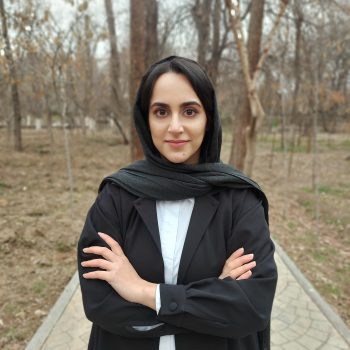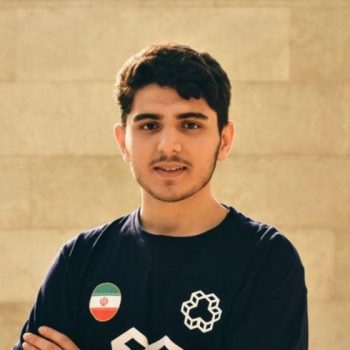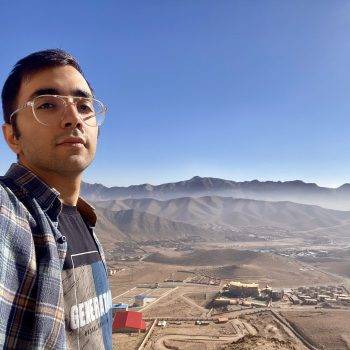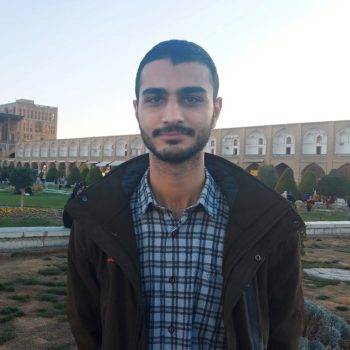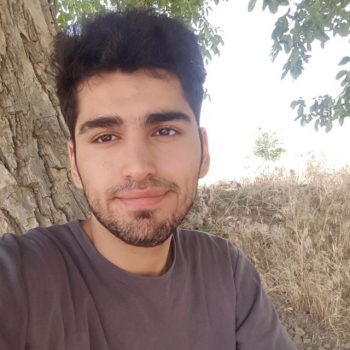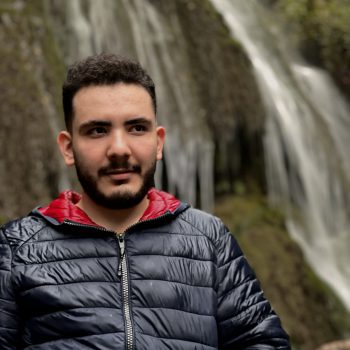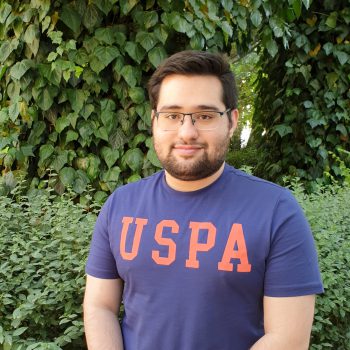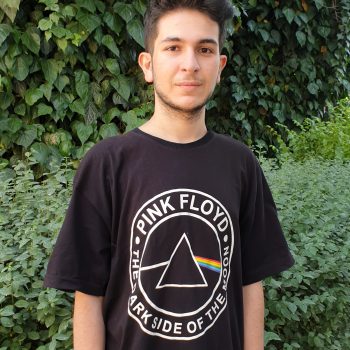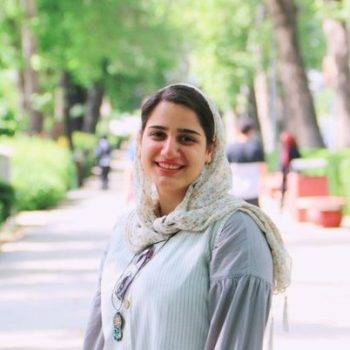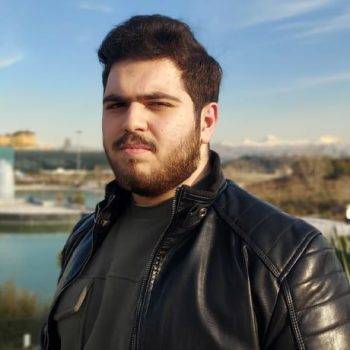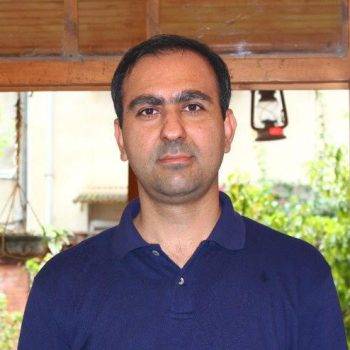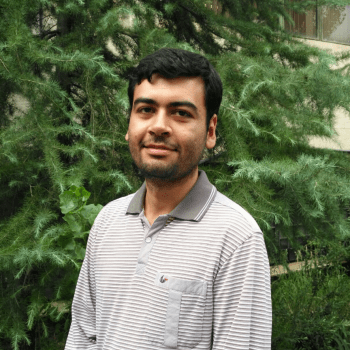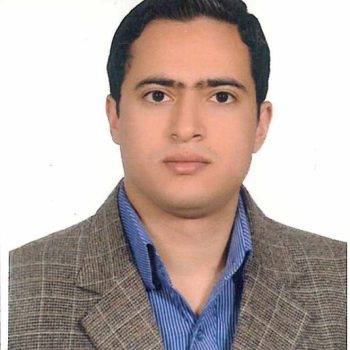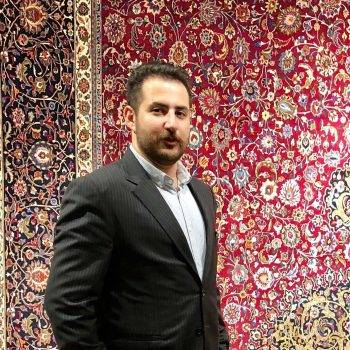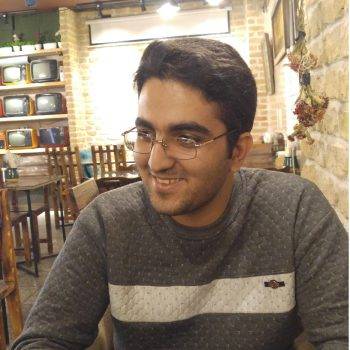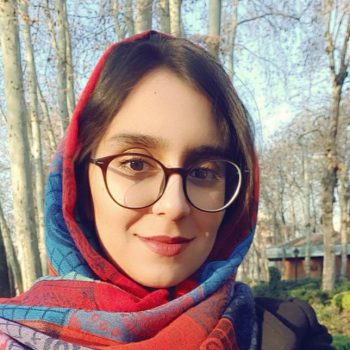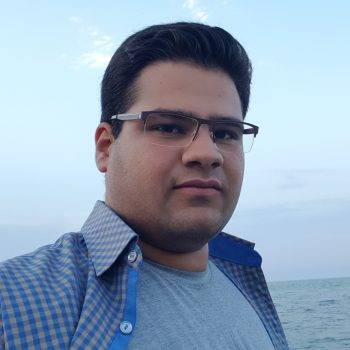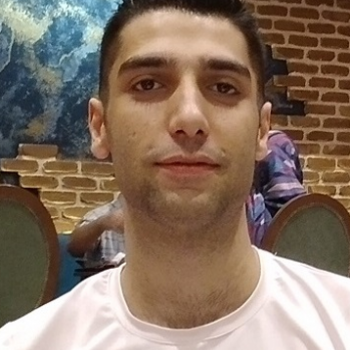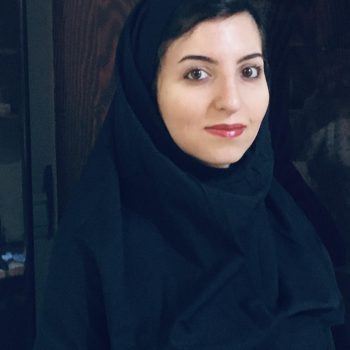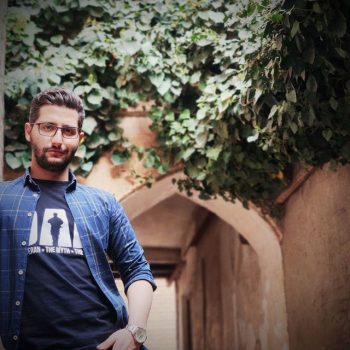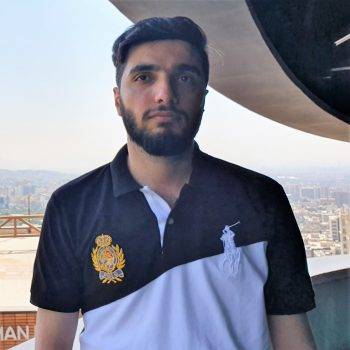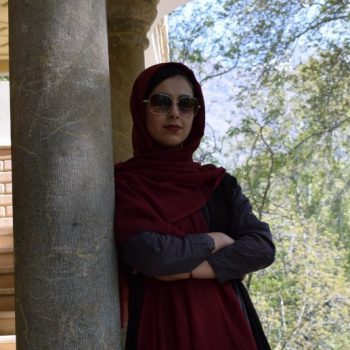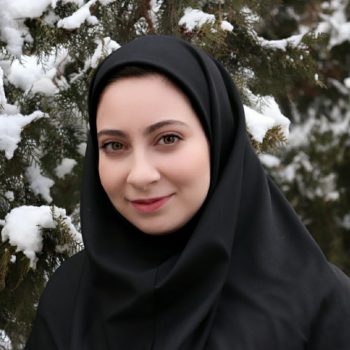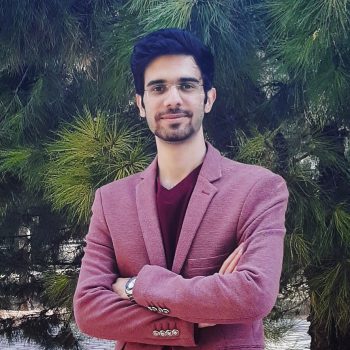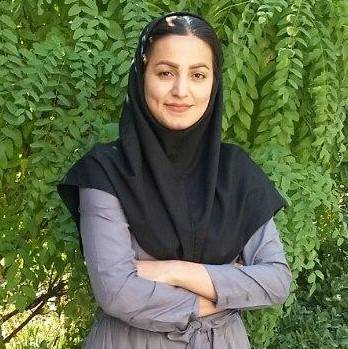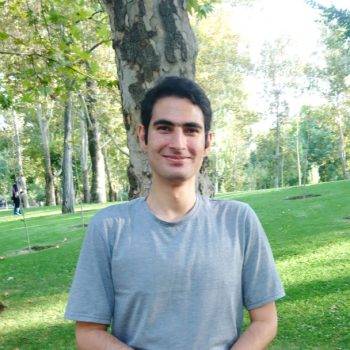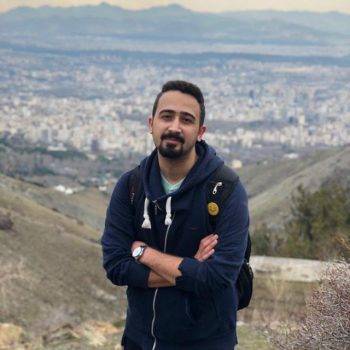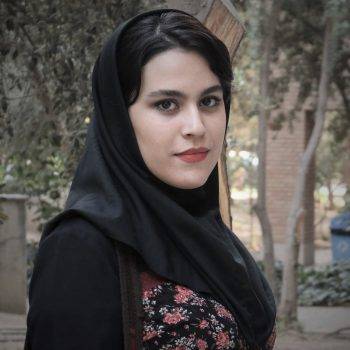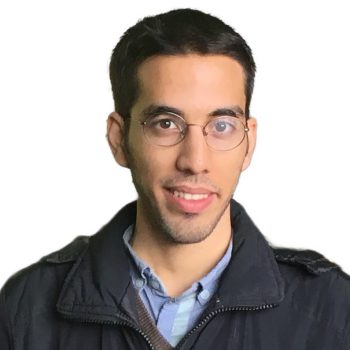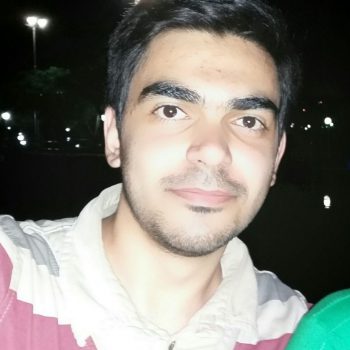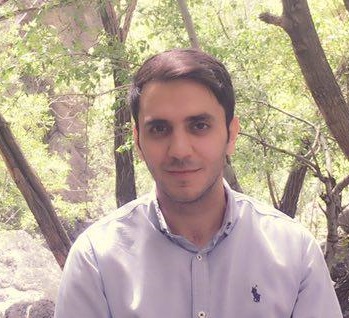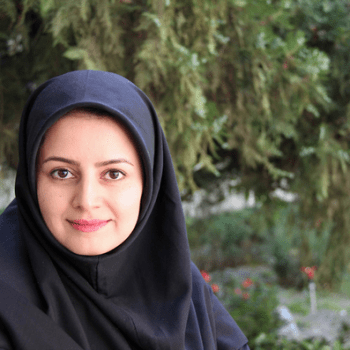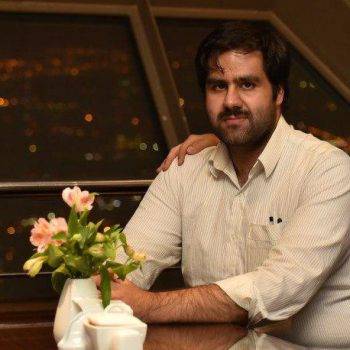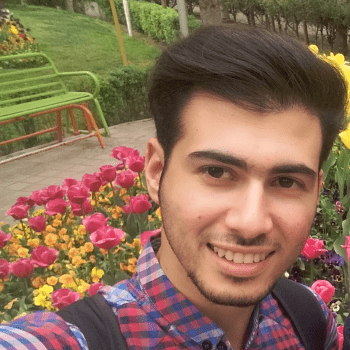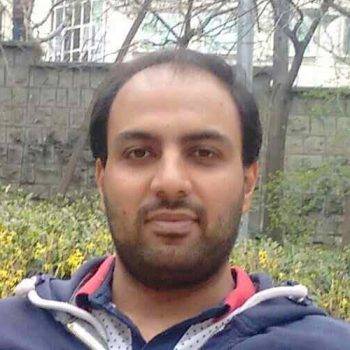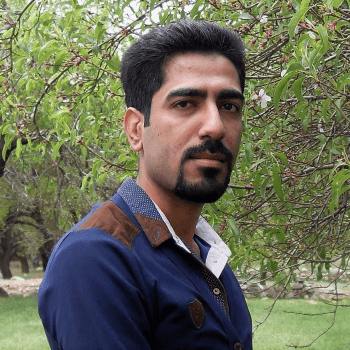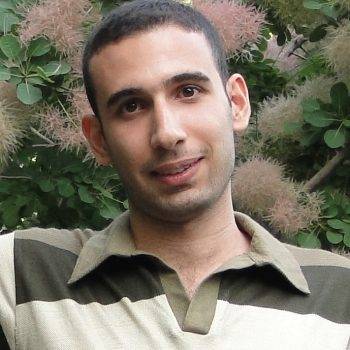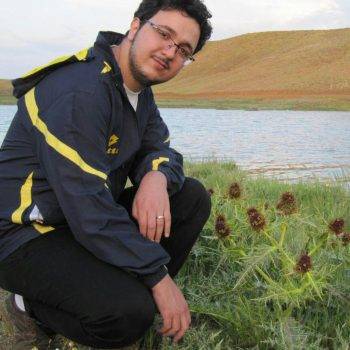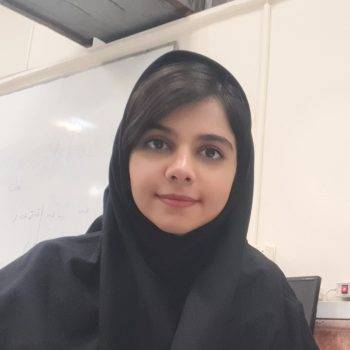Reza received his B.Sc. degree in Electrical Engineering from Isfahan University of Technology (IUT) in September 2017, and his M.Sc. degree in Control Engineering at K.N. Toosi University of Technology, in 2020, Tehran, Iran. Reza has continued his research in the Surgical Robotics group as a Ph.D. candidate in Advanced Robotics and Automated System (ARAS) Lab. His main research interests are Medical Robotics, including applications in surgical training; Haptics, and Teleoperation. He is currently working on the design and implementation of skill transfer and impedance control of multi-user haptic devices for eye surgery training system.
Hussein Mazeh was born in the South of Lebanon in 1986. At the early beginning of his academic study, he was interested in electronics and embedded systems. He received his Master’s Degree in Electrical-Electronic Engineering from the Lebanese University in the 2011 section of Industrial Digital Control. His thesis was implementing FPGAs for controlling Electric wheelchair. Since that time, he worked in the domain of electronic design and industrial control and he has performed various projects and studies in this scope. In 2017 he received his double program degree of Research Master2 in Robotics and Intelligent Systems from both Lebanese University and UTC France. His thesis was on Fault-tolerance for Multi-rotor UAVs. Since that time he was an assistant and research engineer in the lab of robotics, Lebanese University and he had 7 publications in this domain. Currently, he is proceeding his Ph.D. studies in control engineering at K. N. Toosi University. His current research interests include Multi-agents Robots and UAVs, and he is currently a member of ARAS Multi-Agent Robotics,.
Mohammad Javad Ahmadi was born in 1996 in Sari near the Caspian Sea in northern Iran. He graduated from NODET in 2015 with a Diploma GPA of 4/4 (20/20). He received his B.Sc. in Electrical & Control Engineering from Amirkabir University of Technology (Tehran Polytechnic) in 2019 with a GPA of 3.9/4. Since 2019, he has been a part of ARASⒸ under the supervision of Prof. Taghirad and completed his M.Sc. with a GPA of 4/4. He is currently pursuing his Ph.D. in this group with a GPA of 4/4 (20/20). Robotics, Artificial Intelligence, and Computer Vision are his main favorite research topics. As a result of ARAS and Farabi Hospital’s cooperation, he directs ARAS-Farabi AI and VR in Medical Robotics group. (Personal Website | ARAS Website)
Mohammad Jahangir
Mohammad Jahangir studied B.Sc. of electronics engineering at Ferdowsi university of mashhad (FUM). his main field of interest was bioelectrical engineering so as his B.Sc. thesis, he designed and implemented an EXG signal record and processing kit. later on, he continued his studies in M.Sc. of control engineering at FUM. He designed a novel robot that is able to help a physiotherapist in laser and ultrasound therapy routine. he has joined Advanced Robotics and Automated System (ARAS) Lab as a Ph.D. student since October 2023.
As an avid researcher specializing in Data Science and Computer Vision, I am currently furthering my academic pursuits with a Master’s degree in Control Engineering at Khaje Nasir University. My passion for unraveling the complexities of data through sophisticated algorithms and models is matched by my proficiency in Python, which serves as the backbone of my research and professional endeavors. My journey has been marked by a relentless quest for knowledge and innovation in the intersection of technology and real-world applications. This quest has not only sharpened my analytical and problem-solving skills but also equipped me with the ability to adapt and thrive in fast-paced environments. My work, rooted in the principles of Control Engineering, leverages the power of Computer Vision to design and implement solutions that are not only efficient but also transformative. As I continue to explore the vast expanse of data science, my goal remains to contribute to advancements that push the boundaries of what is possible, making a meaningful impact in the tech world and beyond.
Alireza Jahani has received his B.Sc. degree in Mechanical Engineering from the K. N. Toosi University of Technology, Tehran, Iran. He is currently pursuing his M.Sc. degree in Mechatronics Engineering from the department of Electrical Engineering under the supervision of Prof. Hamid D. Taghirad. His main research interest includes Machine Learning and Deep Learning with a specific focus on developing advanced recommender systems and forecasting models.
Alireza Jahani has received his B.Sc. degree in Mechanical Engineering from the K. N. Toosi University of Technology, Tehran, Iran. He is currently pursuing his M.Sc. degree in Mechatronics Engineering from the department of Electrical Engineering under the supervision of Prof. Hamid D. Taghirad. His main research interest includes Machine Learning and Deep Learning with a specific focus on developing advanced recommender systems and forecasting models.
Mohammad Ghaderzadeh was born in Saqqez, Kurdistan, Iran. He received his bachelor’s degree in Power Electrical Engineering from the University of Kurdistan. He is currently pursuing his M.Sc. degree in Control Engineering under the supervision of Prof. Hamid D. Taghirad and Dr. Amir Hossein Nikoofard at K.N. Toosi University of Technology, Tehran, Iran. He is also an IEEE volunteer in the Iran section as a member of Student Activities and Young Professional committees. Furthermore, He is a corresponding member of the Humanitarian Activities Committee of IEEE R8 (Europe, Middle East, and Africa). His main research interest includes Control Theory, Distributed Optimal Control, Control of Connected Autonomous Vehicles, Artificial intelligence & Deep Learning.
Mohammad Mahdi Nazeri Ardakani
Mohammad Mahdi Nazeri Ardakani was born in Yazd, Iran , in 1997. He graduated from Rahimifar NODET high school, Yazd, Iran, in 2016. He received his bachelor’s degree in electrical engineering, control systems from K. N. Toosi University of Technology, Tehran, Iran, under the supervision of Prof. Hamid D. Taghirad. He is currently pursuing his M.Sc. degree in Control Engineering at K. N. Toosi University of Technology, Tehran, Iran, under the supervision of Prof. Hamid D. Taghirad. He is also a member of surgical robotic team in Advanced Robotics & Automated Systems (ARAS). His main research interests are Robotics and Tele-Robotics, Teleoperation Control, Control theory, Haptics, and Surgical Robots.
Sanam Taali-Pasand
Sanam Taali-Pasand was born in Rasht, Iran, in 1993. She received her B.Sc. and M.Sc. degrees both in electrical engineering, control systems from University of Tabriz, Tabriz, Iran, in 2015 and Shahid Beheshti University (SBU), Tehran, Iran, in 2019 respectively. She is currently perusing her second M.Sc. degree in mechatronic engineering at K. N. Toosi University of Technology under the supervision of Prof. Hamid D. Taghirad. She is also a member of surgical robotic team in Advanced Robotics & Automated Systems (ARAS). Her main research interests are Robotics and Tele-Robotics, Teleoperation Control, Haptics and Surgical Robots.
Mohammad Hassanpour
Interested in Robotics, MAVs, and Controller design.
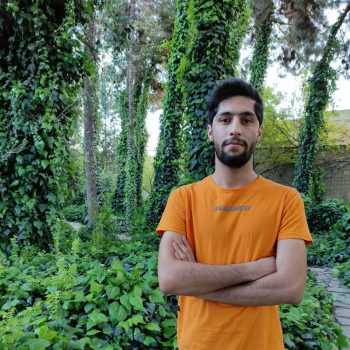
Mohammad Reza Dindarloo
Mohammadreza Dindarloo is a graduate student in Control Engineering at K. N. Toosi University of Technology, Tehran, Iran. He is a member of the parallel and cable robots (PACR) group in the Advanced Robotics and Automated System (ARAS) Lab under the supervision of Prof. Hamid D. Taghirad. He did his bachelor’s thesis in the surgical robotic (SR) group in ARAS. His main research interest includes robot localization, perception, SLAM, sensor fusion, factor graph and etc. He is also interested in doing research in Control theory, Artificial intelligence Deep Neural network algorithms.
Hossein Haghjoo, born in 2003 in Tehran, is a dedicated computer vision and machine learning researcher currently pursuing a bachelor’s degree in Computer Engineering at K. N. Toosi University of Technology since October 2021. Ranked among the top five students in the university, he joined the ARAS Group in 2022. Hossein’s primary project involves the development of a free counter check (self-checker) using computer vision, showcasing his commitment to innovative solutions. His passion extends to computer networking and security, which is reflected in his diverse experiences gained through internships and freelance projects.
Ali Salimian was born in Tehran, Iran. He is in the last year of his bachelor’s studies in Electrical Engineering. He is interested in Machine Learning, Image Processing, and Computational Methods. Currently, He is working in ARAS robotic lab on a computational algorithm to generate fabricable marquetry art. The task consists of two phases: a segmentation procedure followed by a search to find the fittest region of woods for each segment.
Mehdi Vakili was born in Tehran, Iran. He entered K. N. Toosi University of technology with top rank admission and he is in last year B. Sc. in Control engineering. He joined Advanced Robotics and Automated System (ARAS) Lab under supervision of Prof. Hamid D. Taghirad in Nov. 2021. His current project is the implementation of Smart Shelf, low cost intelligent gadget, consists of computer vision and real-time interactive tasks. His major intrests are in embedded systems, microcontroller programming, AI, deeplearning, computer vision, robotics.
Ali Pazani was born on July 26, 2000, in Tehran. He entered K. N. Toosi University of Technology in 2018 and is in his last year in B. Sc. Electrical Engineering. He joined ARAS Lab in July 2021. His major interests are control systems, Robotics, programming microcontrollers, AI, and machine learning. He is now working on Wi-Fi interaction between robot and android application over a TCP connection in the Kamal-ol-Molk project.
Alireza Zahedi was born on July 28, 2000, in Tehran. He started his bachelor’s in Electrical Engineering at K. N. Toosi University Of Technology in September 2018 and now he is a senior student. He joined ARAS Group in May 2021 under the supervision of Prof. Hamid. D Taghirad. His interest in CDPRs led him to work as a member of the PACR group. His main project is about designing Kamal-Ol-Molk II, an easily deployable cable-based portrayer robot. His interests are mainly in Robotics, Control systems, and AI.
Aria Saki was born on March 14, 2002 in Khorram Abad. He started his bachelor in Electrical Engineering at K. N. Toosi University Of Technology in September 2020 and now he is a sophomore student. He joined ARAS Group in January 2022 under supervision of Prof. Hamid. D Taghirad. His interest in CDPRs led him to work as a member of the PACR group. His main project is about designing ARAS Cable cam, an easily deployable cable-based camera robot. His other interests are mainly about Robotics, Electronics and Programming.
Reyhane was born in Tehran, in July 2001, and graduated with a B.Sc degree in electrical engineering, specializing in control from K. N. Toosi University of Technology in 2022. She joined ARAS Group in July 2021. She works on Virtual Bike Tours project for individuals facing limited outdoor mobility .
I am Mahdi Aghapour, born in Tabriz in 2001. I attended a gifted high school from 2013 to 2019, honing my skills and passion for learning. Currently, I am pursuing my bachelor’s degree at KNTU, one of Iran’s renowned universities. My interests lie in the fascinating fields of robotics, artificial intelligence, back end coding and computer vision, where I aspire to make meaningful contributions. Looking forward to an exciting future of discovery and innovation!
Seyed Ahmad Khalilpour has received his B.Sc. degree in telecommunication engineering from Shahed University, Tehran, Iran, in 2010, his M.Sc. in mechatronic engineering in 2013 from K.N. Toosi University, Tehran, Iran. He is currently pursuing a PhD in control engineering at K.N. Toosi University, Tehran, Iran. His current research interests include various aspects of dynamics and control of parallel robots with particular emphasis on cable-driven robots.
Mohammad Motaharifar received the B.Sc. degree in electrical engineering from the Iran University of Science and Technology, Tehran, Iran, in 2009, and the M.Sc. degree in electrical engineering from the Amirkabir University of Technology, Tehran, in 2011. He was a Research Assistant at Real time Systems Laboratory, Electrical Engineering Department, Amirkabir University of Technology from 2011 to 2014. He is currently working toward the Ph.D. degree from the K. N. Toosi University of Technology, Tehran. His research interests include robotics, medical robotics, adaptive control of nonlinear systems, and robust control.
Pouria Mehrabi got his B.Sc in Electrical Engineering from NIT in 2014, majoring in Control Systems Engineering and Design. His bachelor Thesis title was on “Design and Implementation of Inertial Navigation System (INS) for Autonomous Underwater Vehicles“ which was held in Advanced Systems Laboratory and was resulted from his former research activities being held in Advanced Antenna and Microwave Laboratory for 2 years. His main responsibility in the group was to work on theoretical aspects of the project and later in his Thesis development he accomplished his studies in the field. He was also founder of the NIT’s Academic Astronomy Club and also Editor in Chief of Mehbang ( Astronomy ), Nasim ( Politics, Art and Philosophy ) and Editor of Mashgh-e-Honar ( Art ) magazine. He started his graduate studies in 2015 in Autonomous Robotics Research Group in ARAS Advanced Robotics Laboratory on the problem of “ Dynamic Object Recognition in 3D environments“, and has defended his thesis in 2018. Curretly he is assisting ARAS in various aspects, including some topics in Autonomus driving as well as applying his knowldge and expertise in the industrial projects of the group.
Arash has finished his B. Sc. in Control engineering at Amirkabir University of Technology – Tehran Polytechnic in 2016, and started his M. Sc. program in the same major at K.N Toosi University of Technology – Tehran since October 2016 to 2018. His thesis was on focused on Surgical Robotics, mainly development of robotic systems that assists novice surgeons get more effective training. He is currently continuing his research in the group as a research assistance, working on the Version 3 of ARASH-ASiST: ARAS Haptic System for EYE Surgery Training.
Farnoosh Faraji
Farnoosh was born in Tehran, Iran, in 1993. She obtained her B.Sc. degree in Aerospace Engineering and M.Sc. degree in Mechatronics, both from K. N. Toosi University of Technology. During her Master studies, she worked as a researcher in the advanced vehicle control systems laboratory under the supervision of Prof. Ali Ghaffari and graduated in 2019. After that, she joined ARAS group as a member of the autonomous robotics team. Her research interests are Machine Learning, Deep CNN, RNN, and applications in autonomous systems, self-driving cars, and image processing.
Parisa Forghani studied at K.N. Toosi University of Technology, Tehran, Iran, where she obtained a B.Sc. degree in Electrical Engineering (Control-Oriented) in 2020, her thesis being “Design and Construction of a Motor Asymmetry Assessment System to Monitor Patients with Parkinson’s Disease”.
Parisa joined the ARAS Lab, Autonomous Robotics research group, in December 2020. Her current project focuses on Artificial Intelligence ways to help Corneal Diseases like Keratoconus.
Artificial Intelligence, Machine Learning, Data Science and, Computer Vision are her research interests.
Ashkan Rashvand
Ashkan Rashvand was born in 26 June 1997 in Qazvin. He graduated from Shahid Babaii NODET (National Organization for Developement of Exceptional Talent) high school. He finished his B.Sc. in controls engineering at Imam Khomeini International University in 2019 with 3.78/4 total GPA. He has always believed that the most important factors to a person’s success in a specific field are their motivation and interest in that field. Believing this idea helped him to be ranked one of the top student during his bachelor position. He started his M. Sc. program in the same major at K.N Toosi University of Technology under supervision of Prof. Taghirad . Now he is a member of ARAS group. His main research interests is robotics (Robots motion planning ,Robots-Assisted Therapy) and Artificial Life.
Ali Farajzadeh was born in November 1996 in Tabriz. He obtained his B.Sc. degree in Control Engineering from Tabriz University, Tabriz, Iran. He is currently pursuing his M.Sc. degree in Control Engineering at K. N. Toosi University of Technology, Tehran, Iran under supervision of Prof. Hamid D. Taghirad. In line with his research interests in robotics, Artificial Intelligence and Deep Learning he joined Advanced Robotics and Automated system (ARAS) group in October 2019.
Arefe Rezaee has received her M.Sc. in Artificial Intelligence from K.N. Toosi University, Tehran, Iran in 2019. She joined to APAC group under supervision DR. Alireza Fatehi and DR. Behrooz Nasihatkon since 2016. She was a Researcher in Autonomous Driving Systems and Advanced driver-assistance systems (ADAS) at Industrial Automation laboratory. Her thesis was a Traffic Sign Recognition System based on Hierarchical Convolutional Neural Networks and Using Geometric Features For Autonomous Driving. Now she joined ARAS group as a member of the autonomous robotics team and her current research interests are Self Driving, 3D pose estimation and action recognition.
He received his B. Sc. in 2017 from Tabriz University with a major in Mechanical Engineering. Currently, he’s pursuing his M. Sc. in Mechatronics Engineering in K. N. Toosi University of Technology under supervision of Prof. Taghirad and is currently a Masters Student in Parallel and Cable Robotics research group.
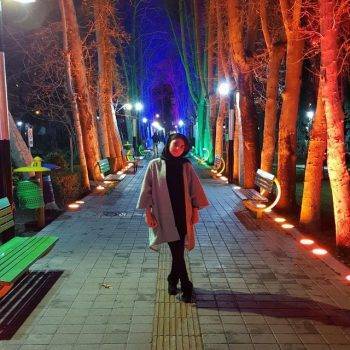
Kosar AminJafari
Kosar AminJafari, born in Tehran, Iran, in 1998, graduated from Salam High School in 2017. She earned her B.Sc. in mechanical engineering from Alzahra University, Tehran, Iran, in 2021. Currently, she serves as a researcher in the surgical robotic team at the Advanced Robotics and Automated Systems (ARAS) group at K. N. Toosi University of Technology, focusing on the following research interests:
- Mechatronics and Robotics
- Modeling, and Developing Robotic Systems
- Medical Robotics and Robot-Assisted Surgery Systems
Mohammad Sina Allahkaram received his bachelor’s degree in Electrical Engineering from K. N. Toosi University of Technology. He is currently pursuing his M.Sc. degree in Mechatronics Engineering under the supervision of Prof. Hamid D. Taghirad. His main research interest includes Artificial intelligence & Deep Learning in Autonomous Robotics.
Alireza Montazeri received his B.Sc. degree in control engineering from K.N. Toosi University of Technology, Tehran, Iran, in 2019. Currently, he is pursuing his M.Sc. degree in mechatronic engineering at K.N Toosi University of Technology, Tehran, Iran, since 2019. He joined the ARAS group since September 2019. His work is focused on Eye surgery training using Mixed Reality. Mainly he makes a 3D model of eye organs and implements physics that affecting them.
Marzie Lafouti was born in Tehran, Iran, in 1998. She was graduated from Farzanegan high school (NODET), Tehran, Iran, in 2016. She has received her B.Sc. degree in electrical engineering from K. N. Toosi University of Technology, Tehran, Iran in 2020. Now, she is a master’s student of control engineering at K. N. Toosi University of Technology, Tehran, Iran. She has joined the ARAS robotics team in 2020. She is interested in intelligent control, deep learning, image processing, detection, and tracking objects.
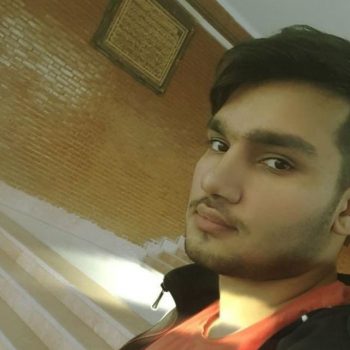
Mohammad Bajelani
Hi there, my name is Mohammad Bajelani. I was born in Tehran, Iran, in 1998. I have been graduated in (Aerospace Engineering) from K.N Toosi University of Technology in 2020. My bachelor’s background involves designing and programming Autopilot and multirotor HIL test-bed. I’ve currently joined to (PACR ARAS group) as an M.Sc. student. I’m interested in implementing RL-based controllers in the Mechatronics system.
Sahar Salehi
Sahar Salehi was born in Mashhad, Iran in 1995. She has been living in Tehran since she was a child. She received her B.Sc. degree in electrical engineering from Shariaty Technical College, Tehran, Iran, in 2017. She is currently pursuing her M.Sc. in mechatronic engineering at K. N. Toosi University of Technology, Tehran, Iran. She joined Advanced Robotics & Automated Systems (ARAS) Lab as a member of the Mixed Reality research group under the supervision of Prof. Hamid D. Taghirad in October 2020. Her research interests are Augmented Reality, Artificial Intelligence, Machine Learning, and Deep Learning.
Mohammad Mahdi Kalantari
Mohammad Mahdi was born in Qom, Iran, in 1997. He has commenced microcontroller programming since primary school, then pursued robotics since guidance school (in Shahid Qoddusi-NODET). By starting high school, he succeeded in Instrumentation followed by AI. Then he performed his undergraduate studies in Electrical Engineering (Control Branch) at Shahed University where he fulfilled his thesis on RL. Presently he is pursuing his M.Sc. in Control Engineering at K.N. Toosi University of Technology, Tehran, Iran. Applied science has always been his passion in every sense of the word.
Sodabe Bandali Was Born In Hamedan, Iran. She received her B.S.C Degree In Electrical Engineering From Hamedan University Of Technology, She Is currently pursuing M.Sc. in Control Engineering at K. N. Toosi University of Technology, Tehran, Iran. She joined ARAS Lab Mixed Reality research group under the supervision of Prof. Hamid D. Taghirad in 2019. Her research interests are Augmented Reality and Virtual Reality . Her work is focused on Eye surgery Simulators.
Amin Mardani is a member of Autonomous Robotics research group in ARAS lab. He received his B.Sc. degree in Electrical Engineering from Qom University of Technology, Qom, Iran. Amin is currently pursuing his M.Sc. degree at K. N. Toosi University of technology, Tehran, Iran under supervision of Dr. Taghirad (KNTU, Tehran, Tehran, Iran) and advisement of Dr. Biglarbegian (University of Guelph, Guelph, Ontario, Canada). His research interests lie in Robotics, Human-Robot Interaction, Trajectory Prediction, Deep Learning and Image Processing.
Hamed Sadeghi was born in Tehran, Iran in 1996. Hamed finished his B. Sc. in Control engineering at K.N Toosi University of Technology – Tehran in 2018 and graduated his M. Sc. program in the same major at K.N Toosi University of Technology – Tehran in February 2022. He has accomplished his thesis in ARAS since 2015. His thesis was focused on Surgical Robotics, mainly design and implementation of the Electronic hardware of ARASH-ASiST: ARAS Haptic System for EYE Surgery Training, and furthermore, surgical skill assessment using kinematic data by using deep-learning algorithms.
Parisa Hasani received the B.Sc. degree in electrical engineering from Shariaty Technical College, Tehran, Iran, in 2018. She is obtained her M.Sc. degree in control engineering in 2022, from the K. N. Toosi University of Technology, Tehran, Iran. She have accomplished her research in ARAS and Surgical Robotics group since October 2018. Her research interests include haptics, medical robotics, master-slave teleoperation, and evaluation in robotic-assisted systems for minimally invasive surgery. Her thesis was based on surgical assessment of intraocular surgeries, using kinematics data.
Ali Hassani was born in Tehran, Iran, in 1996. He received the B.Sc. degree in mechanical engineering from the Shahid Chamran University, Ahvaz, Iran, in 2018, and the M.Sc. degree in mechatronics engineering from the Department of Electrical and Computer Engineering, K. N. Toosi University of Technology, Tehran, Iran, in 2022. He is currently a Researcher with Advanced Robotics and Automated System (ARAS), K. N. Toosi University of Technology. His current research interests include:
• Robotics and Mechatronic Systems
• Medical Robotics and Robot-Assisted Surgery Systems
• Parallel Manipulators
• Multibody System Dynamics
Mohammad Reza Jafari Harandi received his B.Sc. and M.Sc. degree in Electrical Engineering from Sharif University of Technology in 2014 and 2016 respectively. Then he received his Ph.D. in Control Engineering from K. N. Toosi University, Tehran, Iran, in 2021. His current research interests include various aspects including stabilization of underactuated robots, adaptive control, passivity based control, power systems, parallel and cable-driven robots.
He started his technical activity before entering university by C++ language programming in linux which led him to program the intelligence of 11 player soccer team and participate in 2D soccersim matches. Then he began to experience programming on micro-controllers and working on sensors after entering bachelor’s degree in Shahid Beheshti University. He is currently the team leader of Autonomous Robotics research group working on deep learning and its application for detection and tracking of ARAS self driving Car.
Samane Kaviri was born in Kashan, Iran, in 1988. She obtained her high school diploma from Farzanegan high school (NODET), Kashan in 2006. She received her B.Sc. degree from Electrical Engineering department of Iran University of Science and Technology in 2010 and her M.Sc. in Mechatronics Engineering from University of Tehran in 2012. She is currently working towards her PhD degree at K. N. Toosi University of Technology, Tehran. Her current research interest is control of multi-agent systems with special interest in coverage control of autonomous agents, distributed optimal control and distributed estimation.
I obtained my B. Sc. degree in 2017 from Isfahan University of Technology (IUT) in the field of mechanical engineering. I’m currently pursuing my M. Sc. degree in Mechatronics engineering at K.N.Toosi University of Technology in Tehran, Iran. Currently, I am a member of the Cable-Driven Robots(CDR) group in ARAS lab. My main research interest is design and analysis of cable robotic manipulators and currently, I work on Design, Implementation and analysis of a deployable and fast fully constrained planner cable-driven robot.
Abbas is a graduate of Mechatronics Engineering from the department of Mechanical engineering at the K.N. Toosi University of Technology, Tehran, Iran. Under the advisory of Prof. Taghirad, he is a member of Advanced Robotics and Automated Systems (ARAS). He received his BS degree in Robotics Engineering from Shahrood University of Technology, Shahrood, Iran, where he worked under the supervision of Dr. Toosian Shandiz, in 2014.
Samim Khosravi was born in Tehran, Iran in 1990. He received the B.E. degree in electrical engineering from the K.N.Toosi University, Tehran, Iran in 2012, and the Master degree in control field of electrical engineering in 2015. He joined to ARAS group under supervision Dr. Hamid D. Taghirad since 2011. He was interested in robotics, teleoperation systems and eye surgery robots. His current position is automation engineer in Control Pooyan Co.
Amin is a mechatronics engineer who collaborates with ARAS group after graduation, and currently, he is working as a researcher and mechanical design expert at ARAS. His current activity at ARAS is working on a redesigned model of a haptic device which is part of the eye surgery robotics project. Amin’s Education background involves a BSc in Mechanical Engineering from the Babol University of Technology at 2013 and an MSc in Mechatronics Engineering from K. N. Toosi University of Technology at 2016. Amin has implemented the KNTU Delta robot in his master thesis, and he invented a mechanism for the robotics eye surgery project.
I am Amir Mobarhani. I was born in Iran (1988). I have received my B.Sc. and M.Sc. degree in Computer Engineering from Dept. of Electrical and computer Engineering, K.N.Toosi University of Technology, Tehran, Iran. I’m a member of Advanced Robotics & Automated Systems (ARAS) group since 2008. I have participated and contributed in various research projects in Advanced Robotics & Automated Systems (ARAS) group.
Hamid Didari has received his B.Sc. degree in electronic engineering from K.N. Toosi University, Tehran, Iran, in 2015. He is currently pursuing a M.Sc. in control engineering at K.N. Toosi University, Tehran, Iran. His current research interests include various aspects of SLAM algorithm, UAV autonomy and ROS.
Golnaz Raja was born in Tehran, Iran in 1996, she received her Bachelor of Science in Computer Engineering-Software from K. N. Toosi University of technology in 2019. Her current research includes Augmented Reality and Computer Vision and she joined ARAS Lab Mixed Reality research group under the supervision of Prof. Hamid D. Taghirad on October 2019. Her research interests are Augmented Reality and Artificial Intelligence alongside Machine Learning and Deep Learning.
